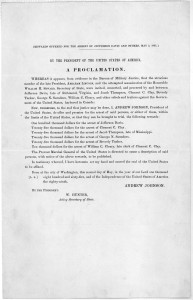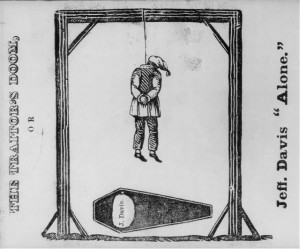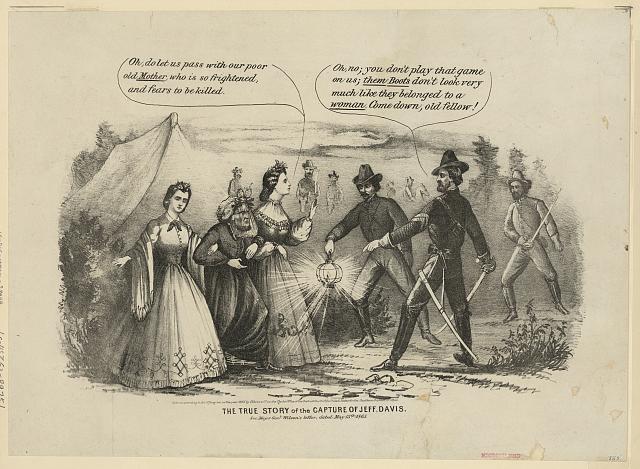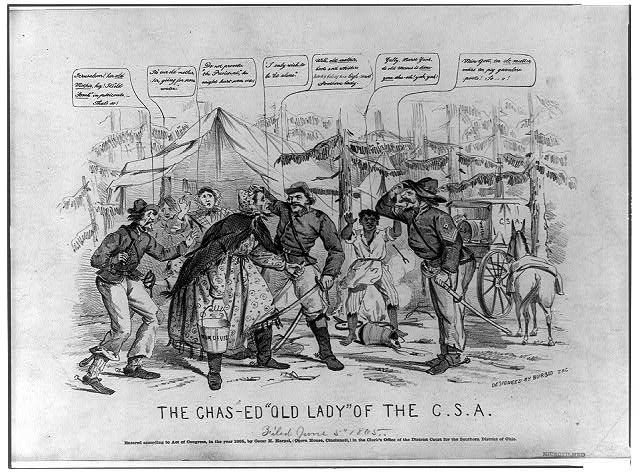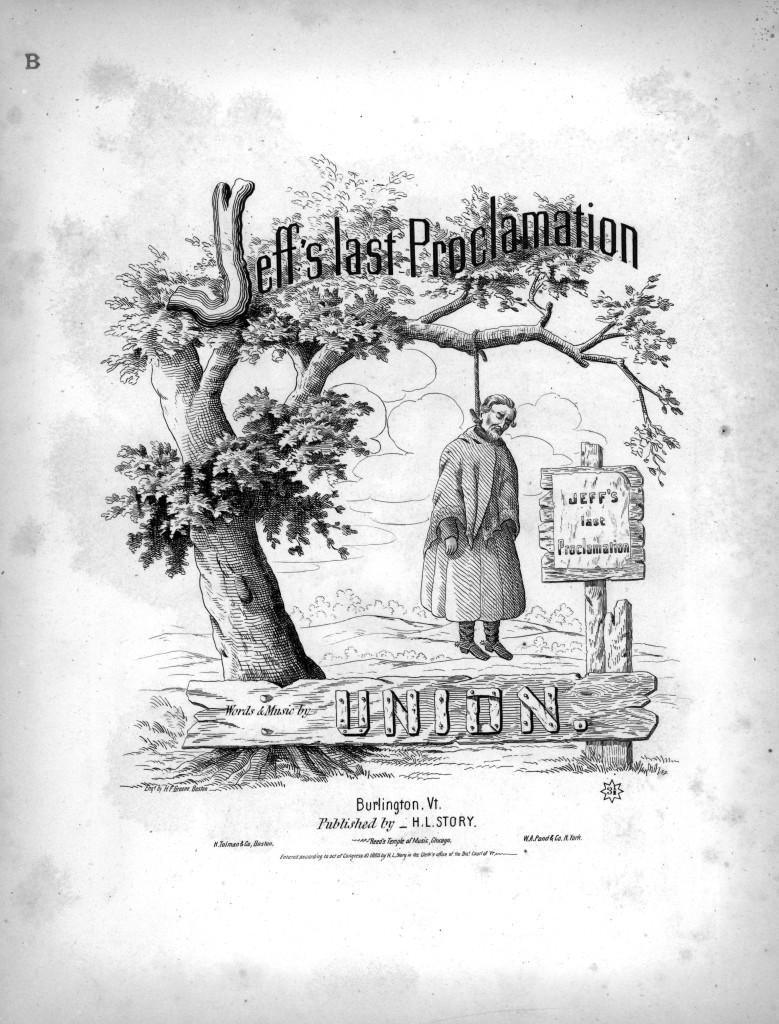If it turned out that Jefferson Davis was not implicated in the assassination of Abraham Lincoln, why should he be punished any more severely than all the other rebels who fought the United States for over four long years?
From a Seneca County, New York newspaper in May 1865:
The capture of Jefferson Davis.
The capture of Jefferson Davis was announced by telegraph at a late hour on Saturday night. He was taken near Irwinsville, Geo., on the 10th inst., by a detachment of the 4th Michigan Cavalry, under Lieut. Col. Pritchard. His captors report that when made aware of the close pursuit of our cavalry, Davis hastily put on one of his wife’s dresses and started for the woods. This part of the story is very doubtful, if not a positive exaggeration. The news of the capture of the rebel chieftain created something of a sensation. That a fate so humiliating and disastrous should overtake the man who for over four years had waged gigantic war; who, for so may campaigns, had held at bay the greatest armies the world has ever seen; that he should be hunted down with a price upon his head, is certainly a most significant finale of the great tragedy that has cost us so much in blood and treasure.
What will be done with Davis now that he is a prisoner is a question somewhat difficult to decide. His capture seems to lend additional complications to the national problem. Despite Mr. Stanton’s assurances, not one intelligent man in ten believes that Jefferson Davis had any complicity in, even the remotest knowledge of, the designs of the assassins now on trial. Yet it was not for Davis, the rebel, but Davis the accomplice of Booth, that the reward was offered. It is presumable, therefore, that as the accomplice he is to be tried. If he really is guilty of complicity in the assassination, and if it can be shown before a proper tribunal – the civil courts – then let him suffer the extreme penalty due his crimes. But if the evidence does not inculpate him, then, should Davis be tried on any other charge? The question is not whether he has forfeited his life by treason to the government, but whether exacting the forfeit is for the best interest of the nation. Had the rebellion been put down in its early stages, to have tried and adjudged to death its leaders, might have been wise and necessary. But the rebellion became a great war, the rebels belligerents, and in the judgement of Congress and the judiciary “alien enemies” even. The rebellion embraced nine-tenths of the people of the eleven States; a fifth part of the population of the country. – Now, can a civil war of this magnitude be considered at its ending a mere revolt, whose leaders are to be tried and punished as criminals?
Is there any reason why Jefferson Davis should suffer death rather than any one of a thousand or ten thousand others? Is he any more of a rebel or traitor because the votes of his fellow citizens advanced him to the front of the rebellion? And will his death glut the popular desire for vengeance, or will it rather only whet the taste and lead to a demand for more victims? And will the execution of one or one hundred rebel leaders do aught to reunite the long-warring sections? Will it cement the Union the firmer, or in any way advance the good of the Nation? These are serious questions, and the officers of the government and the people as individuals are interested in discussing and answering them, calmly, dispassionately and judiciously.
The Library of Congress explains that according to Davis’s autobiography: “at the time of his capture he was wearing his wife’s raglan overcoat, which he had mistakenly put on in his haste to leave, and a shawl, which his wife had thrown over his head and shoulders.”



